The families revealing everything they've ever bought online
- Published
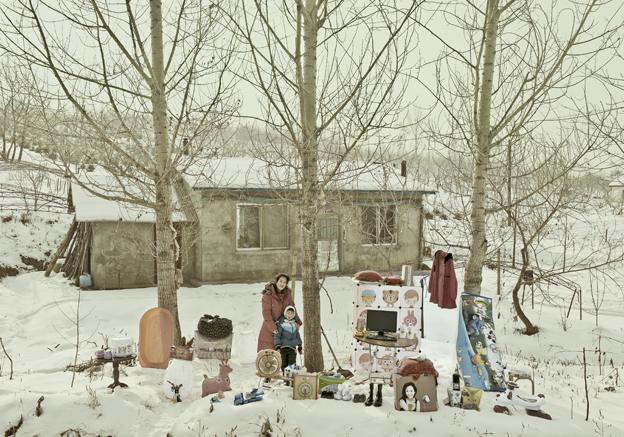
Liu Chunxiao lives in Jilin in north-east China and buys toys online for her son. She worked in Poland for 20 years, but moved back to China to open her own website selling honey and wine.
Photographer Huang Qingjun is famous in China for his photo series, Family Stuff. Since 2003 he has been asking subjects to pose with everything they own, neatly displayed in front of their homes.
Huang has eyes that crinkle at the sides when he smiles. It's a friendly face, and a huge asset when he asks people to do things that you might expect would result in a flat refusal.
"I look for people from all corners of China to showcase what they have. It's a transparent and interesting way to look into people's lives," Huang explains.
"People usually only invite good friends to their homes, because it's a private space, but my pictures show what people possess. They satisfy our natural curiosity."
Huang Qingjun talks about his project
Huang's new project is based on a similar idea - this time, he asked people to display everything they've ever bought online. The results are a testament to the overwhelming popularity of online shopping, particularly China's most popular internet shopping platform, Taobao.
"Taobao saw my Family Stuff project, and asked if I wanted to do a special series looking at online shopping," Huang says. "I agreed to do the project, but I had a few of my own ideas in mind. I wanted to find people from all directions: east, west, south and north."
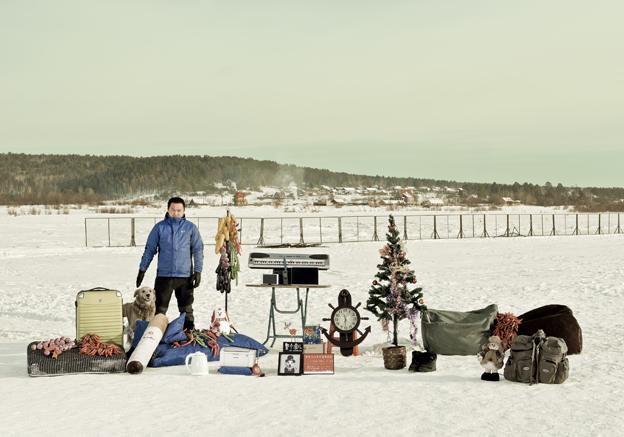
Wang Jafeng runs a youth hostel near China's border with Mongolia and has spent more than $35,000 (£22,800) online. He says internet shopping is a "big joy" in his life.
More than half of China's 1.4bn population can access the internet via a broadband connection. Many also have access to mobile internet and can shop online using their smartphones.
Internet sales rose 49.7% last year, according to Chinese government statistics, in comparison to a 12% rise in all retail sales across the country.
For people living in remote areas, internet shopping is a lifeline to the outside world - a way to access a host of products that would never be seen where they live. In some of China's more inaccessible places, delivery crews must sometimes abandon their vans to drop off packages on foot.
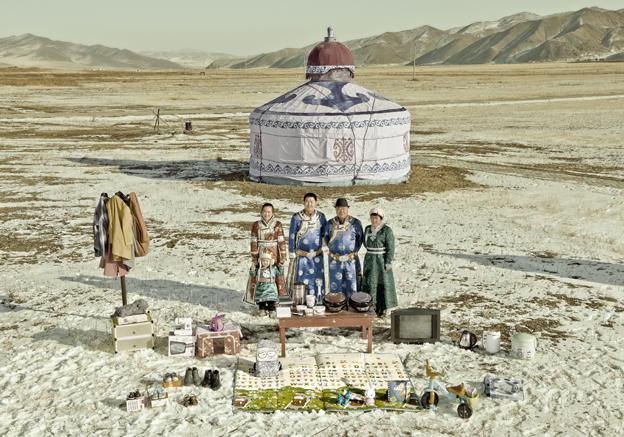
Liu Jun and his family have lived as nomadic herders for generations - he settled in a town but still lives in his yurt every spring and autumn. When he's on the grasslands he shops online, waiting five days for orders to arrive at a nearby outpost.
They might seem straightforward, but Huang's photos often bring emotions to the surface. One girl who came to a recent exhibition began to cry, he says.
"She saw the pictures of people who have the most possessions next to the ones who have the least. She was touched," he explains.
"Everyone understands materialistic things in different ways. Some of the subjects I photographed, like the Tibetan monk, own very little things, but can we say they are not happy? I don't think happiness depends on materialistic needs. It's what your heart wants."
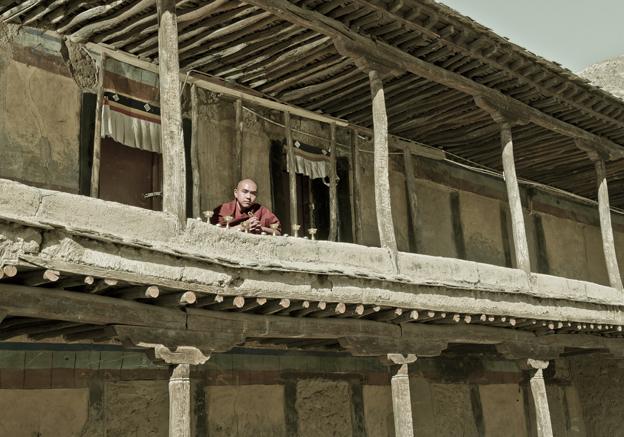
When he was four, Gyatsoling Rinpoche was deemed a reincarnation of a Living Buddha. Now 25, he graduated from the Tibet Medical College and works at the Buddhist Research Institute in Chandu, Tibet. He finds religious items, including yak butter lamps and candles, are cheaper online than in local stores.
Huang Qingjun plans to continue his Family Stuff project, but having photographed a large number of ordinary people, he is thinking of trying to persuade some famous faces to open their doors and bring out their possessions.
"I really want to photograph some entrepreneurs or government leaders. If I dare to dream, I want to photograph President Xi Jinping. People would be curious to see what he has.
"People are all born equal, but we all follow different paths under different living conditions."
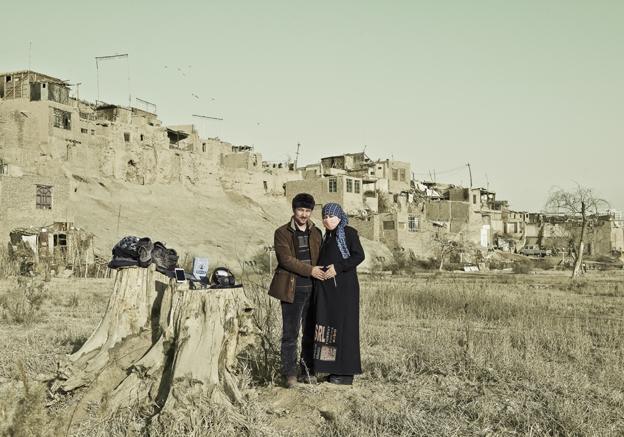
Mahmoodjan and his wife live in Kashgar, a city in China's far western Xinjiang region - he is a Uighur. Mahmoodjan is the only person in his family to attend university. He has bought electronics online, including a Kindle and an iPhone 6.

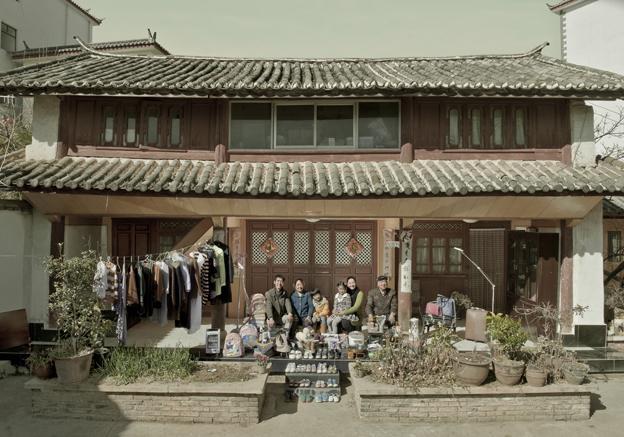
Aer Yingming and her family live in the south-western province of Yunnan - she is from China's Yi minority and her husband is from another minority, the Naxi. Every corner of their home is filled with products bought online.

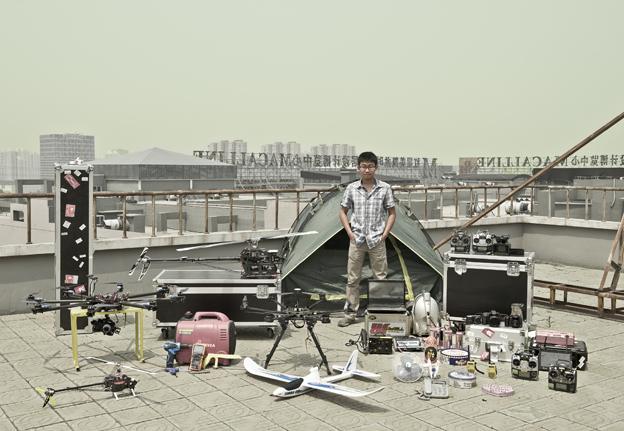
A recent film school graduate in Beijing, 26-year-old Li Nian has been a model plane enthusiast since he was a small boy and now runs an aerial photography studio. He designs some of the equipment he needs and finds people online to build it.

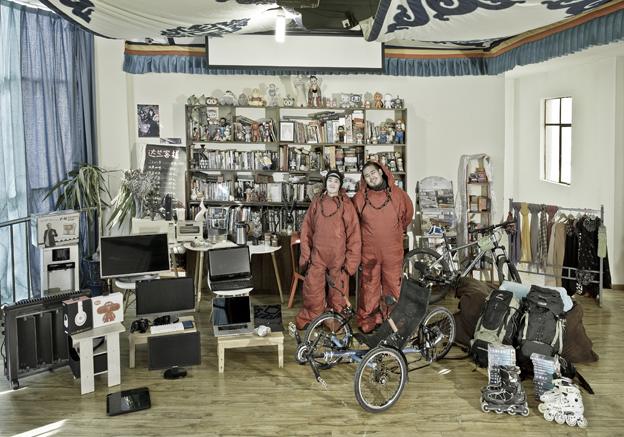
Three years ago, Jia Yuhao and Lu Xuefeng quit their high-paid jobs and moved to Tibet where they now run a small hotel. About 80% of what they own was purchased online. They love outdoor equipment and are pictured in their wearable sleeping bags.


This 28 year old woman in Beijing received some of her Taobao items as wedding gifts last year, including her favourite item, the mirror adorned with a decorative bird.

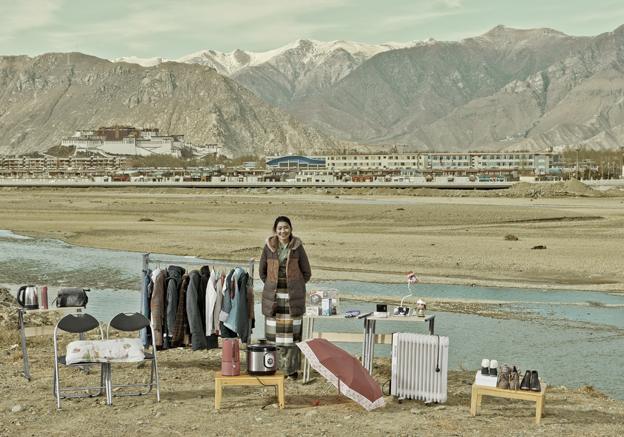
Yang Chin moved from her home village in south-eastern Tibet to Lhasa, the Tibetan capital, 10 years ago, when she was 17. She began working in cafe where the owner, from Hong Kong, taught her how to shop online. Usually, she buys Western clothing for herself - her most prized possession is a pair of ripped jeans.

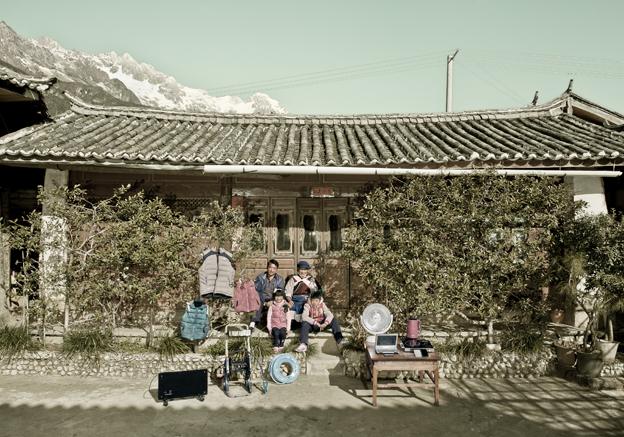
Farmer Lu Qunzhi, from China's south-west Yunnan province, gets his brothers to help him use the computer so he can place an order. He's bought most of the items in his house online, including his newly-arrived irrigation pump.

More from the Magazine
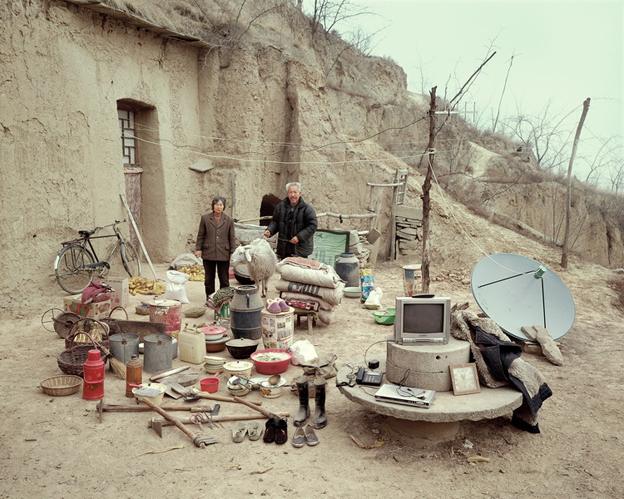
Huang Qingjun's earlier photographs of people with all their possessions showed the social changes that have taken place in China. "People's lives have changed enormously," he told the Magazine in 2012. "Maybe their incomes haven't been affected as much as in the cities, but their thinking has."

Subscribe to the BBC News Magazine's email newsletter, external to get articles sent to your inbox.
- Published22 September 2015